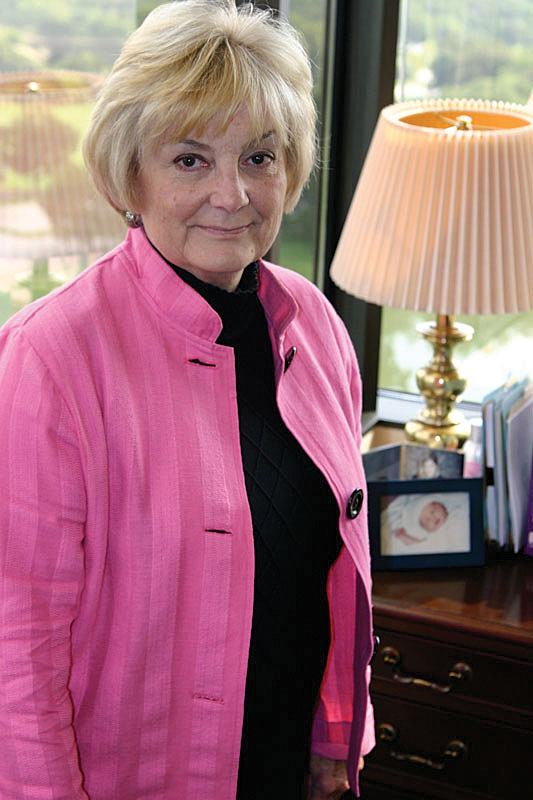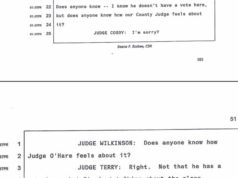The City of Fort Worth has an uneven at best and hostile at worst track record when it comes to allowing independent commissions to enforce ethical standards. The fact that city officials are seriously considering a citizen oversight committee for the Fort Worth police department shows that Cowtown may finally be joining other major cities by providing meaningful protections for its citizens. We hope that’s the case, but we will wait and see. And maybe wait some more.
Many of the aims of the proposed oversight committee — holding city employees accountable, upholding ethics policies, issuing subpoenas, initiating investigations — already fall under the purview of the city’s Ethics Review Commission, a five-volunteer board that holds the important role of enforcing the city’s Code of Ethics. To fulfill that role, the commission has the power to review sworn complaints, issue subpoenas for witnesses, request evidence, and listen to testimonies.
The commission would stand as a bulwark against conflicts of interest, nepotism, graft, and other forms of public corruption were it not for the fact that Fort Worth’s elected officials have allowed the commission to slowly, and quietly, expire. The last remaining commission member’s term was up last year, effectively killing the sole body that is tasked with enforcing our city’s ethics policy. The Ethics Review Commission’s demise occurred without mention by the city or the media. We reached out to City Secretary Mary Kayser, who maintains the city’s Code of Ethics and other important records, for the city’s explanation.
“We have experienced difficulty finding qualified and interested persons to serve on this commission and are exploring different options regarding appointments to this commission,” she said in an email.
We also reached out to Mayor Betsy Price to learn what her plans are for reviving the commission. She did not reply. The city’s Code of Ethics states, “All vacancies [for the Ethics Review Commission] shall be filled for the remainder of the unexpired terms. A member whose term has expired shall continue to hold office until his or her successor has been appointed by the city council and shall also continue to hold office after his or her successor has been appointed.”
The lapse of the Ethics Review Commission ironically constitutes a violation of the city’s Code of Ethics. Cynics could all-too-easily blame the end of the commission on apathy or neglect. The full story goes back to the Mike Moncrief years, when the mayor (who also didn’t respond to our questions) took a hard stance against the now-defunct commission.
Nine years ago, Moncrief fired the president of the ethics commission. (“Has Fort Worth Lost its Moral Compass?,” Sep 2010). The infraction? Hortencia Laguna, who had served as the commission’s president for years, and the ethics commission heard a resident complain about Fort Worth City Council putting gas industry executives on an air-quality task force. The commission agreed that the placement constituted a clear conflict of interest.
After Laguna was dismissed, Fort Worth Weekly associate editor Jeff Prince wrote, “City leaders thanked the gas execs for serving on the task force and vowed to change the ethics code to allow industry insiders to participate as voting members on future boards.”
In 2012, Moncrief added a controversial (and still standing) provision to the city’s ethics code that amounted to a get-out-of-jail-free card. The addition, according to a story by Weekly reporter Peter Gorman (“Chipping Away,” Aug 2012), notes that “as long as a city official has reasonably relied ‘either directly or indirectly’ on a written opinion from the city attorney’s office, then no ethics violation has occurred.”
Elected officials or city employees had 15 days to obtain a free pass from the city attorney. The following year, city staff attempted and failed to allow city advisory boards, task forces, and temporary committees to meet in private without posting meeting times, taking public input, or even keeping minutes (“Trusting City Hall,” Jan 2013).
During Moncrief’s tenure, protecting Big Oil and Gas came at the expense of the city’s ethics commission. Fort Worth is now facing a different and undeniably more serious ethical crisis: the too frequent shooting and killing of unarmed black men and women by local law enforcement. Fort Worth needs a citizen oversight committee to hold law enforcement officials accountable. Fort Worth also needs an active Ethics Review Commission, but the city has no current plans for revamping the expired commission — and there appears to be no significant effort to revive it anytime soon.













Of course they don’t want an Ethics Review Committee. They’d have to answer for the 2017 Cybersecurity incident, the Panther Island debacle, and using the City pension account as an overdraft/savings account to cover up for oversights.
They “have experienced difficulty finding qualified and interested persons to serve on this commission,” huh? Well let’s get them some candidates. Apply here:
https://fortworthgov.granicus.com/boards/forms/133/apply/1682145?code=0e772e53-e0bb-4619-be04-82f307229424
Just another way of saying to the citizens of Fort Worth, “you are not safe “. We need to clean house of the people running out city.
“The page you were looking has been removed”
Apparently, they wanted it down so badly they couldn’t bother with proofreading.
The city provided the correct link: https://fortworthgov.granicus.com/boards/forms/133/apply/1700396?code=0f1ee72f-620c-4bce-8862-6623eb79ad82